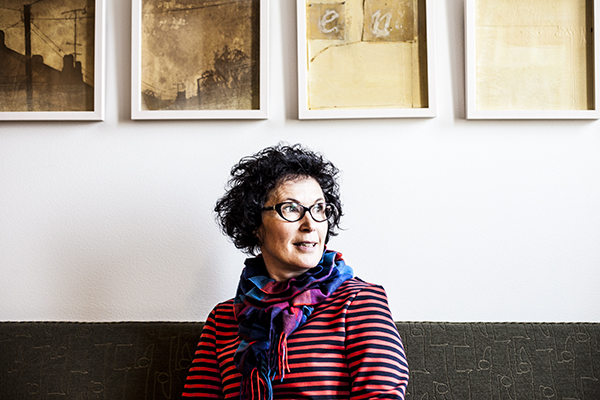
- Professor of Educational Sciences in the field of teacher education at the University of Tampere
- Leader of the HET group with Vesa Korhonen
How did you become a researcher?
Already from the beginning, teaching and researching felt close to each other so to be a researcher came very naturally through my work as a teacher. The first push to start on the dissertation and become a researcher came from the urge to understand more about the learning difficulties and find ways to facilitate learning as a teacher. The most interesting aspect of educational sciences is the connection between theory and praxis, the potential in it. A good theory has its foundation in praxis.
What is your current role in the HET research group and how did you become a member of the group?
In the HET research group I am working currently as a leader with Vesa Korhonen and as a researcher in three of the HET subgroups.
I joined the HET research group via two research and development projects called Campus Conexus in which we conducted research on transitions in higher education. We also wanted to determine the preconditions for activities which promote participatory teaching and learning in higher education.
What kind of research are you doing at the moment?
We are currently conducting a research on the different meanings of curriculum in teaching, and learning and also preservice teachers’ and beginning teachers’ professional learning in Finland, Brazil and in the USA. Themes for research which are especially dear to my heart are parity, inclusive education and the spaces and communities of learning and the various ways in which they can be developed.
Only recently I was occupied with a program for students of the secondary school teacher education, wanting to find out, what kinds of things strain the students and what helps them to cope with the workload they are facing. It is interesting that the Y-generation doing their studies now will change the university and working life more than the university can change them. So, from the perspective of research, it is essential to consider, what generations can learn from each other. In general I want to engage in research, which contributes to development of teaching and school practices.
What’s it like to be a researcher?
Being a researcher is extremely creative and interesting. The “creative madness” is comparable to a theater production process, where you advance towards the idea with the support of your colleagues and follow it. Research is a journey, where you need to overcome difficulties, immerse yourself in the subject of the research and feel thrilled about the perspectives that it offers. A researcher needs to be able to tolerate the initial chaos of a research process. A researcher needs to be rich with ideas and work with perseverance and intensity. In addition, researcher is also a writer, he or she needs to know how to express things clearly and concisely. Anyone who decides to become a researcher, is sure to have an interesting and unique work.
What kind of challenges are related to research?
The work is so intensive that it turns into a life habit. At the same time, research can be extremely, even frustratingly slow. That is why research is also stressful work and needs something to counterbalance it.
What inspires you?
The best thing about working as a researcher is the possibility to change your own preconception and thought. At the end of the journey, you’ll understand something in a completely new way.

